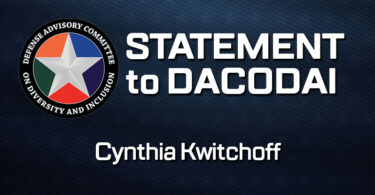By Lt Col Eric M. Vogel, USAF ret, USAFA ’73
Strange New World: How Thinkers and Activists Redefined Identity and Sparked the Sexual Revolution by Carl R. Trueman
Brave New World, written in 1931 by Aldous Huxley, is the story of life in a dystopian World State in the year 2540.
Stranger in a Strange Land, by Robert Heinlein, was published about 30 years later. This classic science fiction novel describes the voyage of a human, born on Mars, to earth.
Almost a century after Huxley’s work, we can learn about our Strange New World, thanks to Carl Trueman of the Ethics and Public Policy Center.
The title of his non-fiction book is a suitable combination of the previous two titles of fictional works. Trueman’s world–the world of today–is a blend of the alienation, estrangement, and loss of freedom depicted in those two older books.
Subtitled How Thinkers and Activists Redefined Identity and Sparked the Sexual Revolution, the value of Trueman’s thoughtful work is found in the “How” of what happened, not necessarily in the Sexual Revolution itself.
In examining how we evolved to the dystopian state of today’s world, the author covers much of the philosophical and political changes that have led to the Diversity-Equity-Inclusion debacle of the 21st century.
Of course, as you might expect, Marxism raises its ugly head in the book. Trueman discusses several of the usual suspects: Marx himself, Nietzsche, Freud, Marcuse and Foucault.
We are also introduced to some of the notable personalities of the Sexual Revolution: Jenner, Wilde, Simone de Beauvoir, Germaine Greer and even ethicist Peter Singer.
Ryan Anderson (President of the Ethics and Public Policy Center, and author of When Harry Became Sally), introduces us to the key cultural and societal problem of today in his foreword to the book: “Authenticity to inner feelings, rather than adherence to transcendent truths” has become the norm.
Trueman continues this theme as he introduces us to “expressive individualism,” an important term throughout his work: “The belief that each person must act based on his or her core feelings and intuition.”
In part, thanks to the Marxist individuals mentioned above, gone are the authorities of nation, religion and family. This new way of thinking is not limited to sexual matters; it is a key factor in the psychological ills of the confused inhabitants of the Western World.
Of course, in today’s world, religion must go. For Marx and Nietzsche, religion is but a crutch. Nietzsche thought that “freed from the burden of being creatures of God, human beings must rise to the challenge of self-creation, of being whoever they choose to be.” And today—just as Marx prescribed—there is no absolute moral standard.
To add to his explanation of our strange new world, Trueman introduces us to Wilhelm Reich, a German psychoanalyst and Marxist of the 1930s, who tied together the thinking of Marx and Freud.
Strange bedfellows? Maybe not. Reich criticized the concept of family as the norm and professed that “sexual codes must be shattered if human beings are to be truly free.” These thoughts appear in the aptly titled chapter “Sexualizing Psychology; Politicizing Sex.”
In the section “The Revolt of the Elites,” Trueman echoes Christoper Rufo’s description (see American’s Cultural Revolution) of the “long march” of Marxism through the institutions.
Trueman, while not using the Marxist label, laments the elites’ “deep commitment to tearing down the values of the past” in politics, culture, education, arts & entertainment, and corporate business. The goal is the “pursuit of establishing the new values, those of expressive individuals…”
(For a great read focused on the corruption of public education in America and the subsequent poisoning of children’s minds, see Battle for the American Mind by Pete Hegseth.)
Just short of 200 pages, this is not a leisurely read, but it is well-written, balanced and a valuable resource for understanding our “strange new world.” The author is considerate of the reader, including a 2-3 page introduction and a 2-3 page summary in each of the nine short chapters, as well as a concise glossary at the end. These are great time savers for those looking for a quick read of his main ideas.
Perhaps the author’s closing recommendations are too idealistic for some, although I personally agree: have faith and return to God.
However, I think that all members of STARRS would strongly support another of his closing thoughts: “I must not despair, I must work to the best of my ability to right such wrongs…”
I admired the honesty, balance and reasoned arguments of this book so much that I included it with three others sent to the Superintendent, USAF Academy, this past summer as donations for the Diversity and Inclusion Reading Room in the McDermott Library.
When I checked in September (during the 50Th Reunion of the Class of 1973), none of the books were there.
I can only hope that the Curriculum Advisor for the Diversity and Inclusion Minor has the copy of Strange New World on his or her desk as a reference.
So the Air Force Academy refused to include this book in their DEI Reading Room (ie Soviet Political Enlightenment Dayroom), but these books are allowed:
For more background on the Marxist William Reich whose influence we see today in the alphabet sex agenda, transgenderism, grooming children, etc, see pages 78-81 in Re-Remembering the Mis-Remembered Left: The Left’s Strategy and Tactics To Transform America (pdf) written by a retired Army intelligence officer.








Leave a Comment